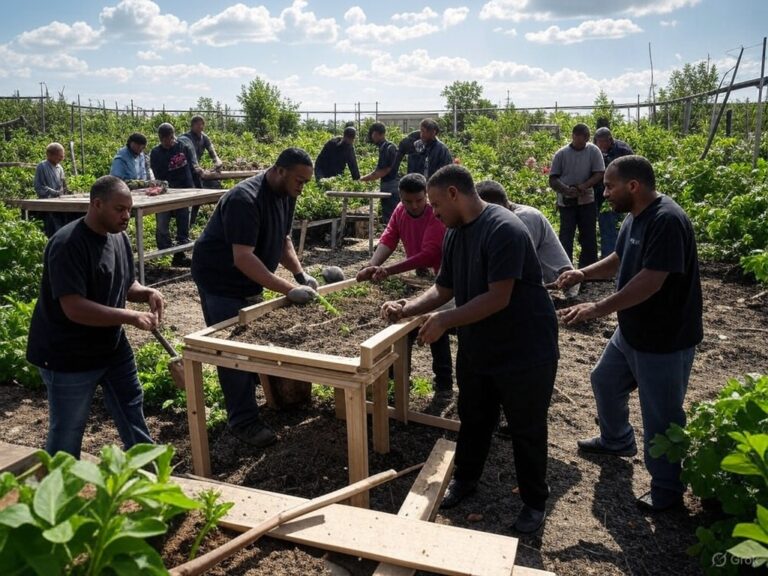A quieter force arising from our everyday actions remains potent despite worldwide noise consisting of endless counsel and continuous advertisements and viral tips. According to experience, inspiration mostly emerges as we observe rather than speak and demonstrates itself through regular discipline rather than constant demands. The essay details my journey when my organic daily life with walking and tea preparation prompted my brother to rethink his life choices. Throughout history Laozi and Socrates and Kant together with other great thinkers have demonstrated that authentic leadership stems from creating personal examples as stated in this philosophical observation. This essay presents personal life stories combined with insights from past and present thinkers to demonstrate how our actions can motivate positive change in other people.
Essential Principles of Two Life’s Changes
Through many years I have dedicated myself to living daily activities with mindfulness towards what I eat. My daily food consists of eating pumpkins and coconuts together with almonds and beetroots and ginger along with garlic and eggs as well as aloe vera. Each day I prepare a tea mixture which includes black tea leaves together with garlic and ginger and aloe vera and boiled in water to create my daily health drink. Living by this way of life is more than a passing fad since it represents my fundamental beliefs.
I moved to the city in February this year where I resided in my brother’s home. The city hurries at a rapid pace while numerous tempting choices lead you into complexity and health deterioration. But I stayed the course. I performed walking and running exercises during each evening. I made my tea. My brother watched—but never joined. I never urged him to. I just lived.
He spoke to me in a soft voice one day by asking, “Would you permit me to accompany you during your evening walk?”
The question embodied two aspects of simultaneous mundane and profound depth. He was inspired through actions rather than through verbal motivation. His eyes showed the challenge that presented a meaningful way of life rather than words. That night, we ran together. On the following day he took responsibility to organize the tea making process. The preparation of tea somehow became his daily responsibility which he makes with attention to detail while making certain we never skip our daily practice. A routine lifestyle unites us after both of us modeled it to each other.
Laozi provides the most accurate explanation of this phenomenon through his teaching which states that “a leader is best when people barely know he exists” (Laozi, as cited in Chan, 1963). I did not guide my brother in any conventional leadership capacity. My way of existence attracted him to join it. Taoist philosopher Laozi demonstrates authentic leadership emerges from non-intervention by forming such a solid foundation on personal direction that people naturally get drawn toward it.
The approach of Socrates within Athens involved barefoot wandering as well as thoughtful inquisition to create thoughtful engagement without pressuring answers from others. Socrates made his impact on people through the power of his magnetic personality rather than force. Through his examined lifestyle he proved that the combination of action and curiosity exceeded doctrinal commitment (Plato, trans. 2002). My brother perceived me through qualities of consistency and mindfulness along with intentionality rather than seeing me as flawless. The change in my behavior and character toward others was what truly mattered.
According to Immanuel Kant through his Categorical Imperative principle we need to follow maxim-based rules that we want to exist globally (Kant, 1785/2002). It means conduct yourself the way others would want to imitate as well as should imitate you. My healthy decisions served as behavioral examples which taught others righteous ways of conduct. My practical representation of disciplined living presented examples that people wanted to model in their lives.
Psychology theories of today back this understanding. As Albert Bandura (1977) wrote in his Social Learning Theory people acquire knowledge most efficiently from watching others. Intentionally conducting my routines allowed my brother to absorb the valuable principles which led to his adoption of these ideals. Motivating his decision came from the observation he made instead of commands he received from me because he witnessed desirable behavior rather than simply hearing instructions.
The Roman Emperor Marcus Aurelius documented these virtues through his Meditations because he learned them from people he wanted to emulate (Marcus Aurelius, 2006). He memorized the essence of others instead of demanding changes in others while his own attitudes and actions flowed naturally from what he learned about them.
According to Aristotle virtues are developed through continuous action because they do not exist naturally (Aristotle, trans. 2009). Leading by example consists of more than exceptional solitary acts since it requires ongoing consistency. Day after day I practiced virtue by picking runs instead of rest along with tea instead of soda and garlic rather than greasy foods. The developed virtue grew from belonging exclusively to myself toward a collective quality held by both my brother and me.
According to Epictetus the Stoic philosopher people should avoid trying to explain their philosophy by just showing it through their actions. This quote serves as Epictetus’ piece of wisdom as recorded by Lebell (1995). A solitary statement captures the core essence of what it was about. The reason which drove me to prepare tea and exercise daily and steer clear of packaged foods needed no external clarification. I lived it. Through this embodiment process my brother received his personal source of motivation.
Our story may seem small. The natural law stands that whatever you do will generate effects that spread accordingly. The transformation of a disciplined person brings changes to another individual. The philosopher can appear anywhere from formal academic spaces to domestic kitchens where he prepares tea that alters the lives of others.
Be the Spark in Someone Else’s Fire
People need true leadership at this time which comes through quiet authenticity rather than artificial showmanship or control methods. Our daily choices for eating bring forth movements and speaking or staying quiet produce messages that others will understand.
There was no quick transition in my brother’s improved way of life. It was not dramatic. But it was deep. Watching the way I lived led him to make his first step on a personal journey. True influence operates through supporting people’s freedom alongside providing them routes that they can embrace at their own pace.
The six philosophers from Laozi to Epictetus share mutual agreement about achieving leadership through consistent deliberate fulfilment of life. Preaching is not necessary for what we intend to accomplish. We just need to be authentic.
So, brew your tea. Go on your walk. Choose your food wisely. People observe us without prejudice so they can comprehend our existence. Your example of walking them beside you will show others that their path remains attainable without any need for direction.
References
Aristotle. (2009). Nicomachean ethics (W. D. Ross, Trans.). Oxford University Press. (Original work published ca. 350 B.C.E.)
Bandura, A. (1977). Social learning theory. Prentice-Hall.
Chan, W.-T. (1963). A source book in Chinese philosophy. Princeton University Press.
Epictetus. (1995). The art of living: The classical manual on virtue, happiness, and effectiveness (S. Lebell, Trans.). HarperCollins.
Kant, I. (2002). Groundwork for the metaphysics of morals (A. W. Wood, Trans.). Yale University Press. (Original work published 1785)
Laozi. (1963). In W.-T. Chan (Ed.), A source book in Chinese philosophy (pp. 139–176). Princeton University Press.
Marcus Aurelius. (2006). Meditations (G. Hays, Trans.). Modern Library.
Plato. (2002). Five dialogues (G. M. A. Grube, Trans.). Hackett Publishing.




